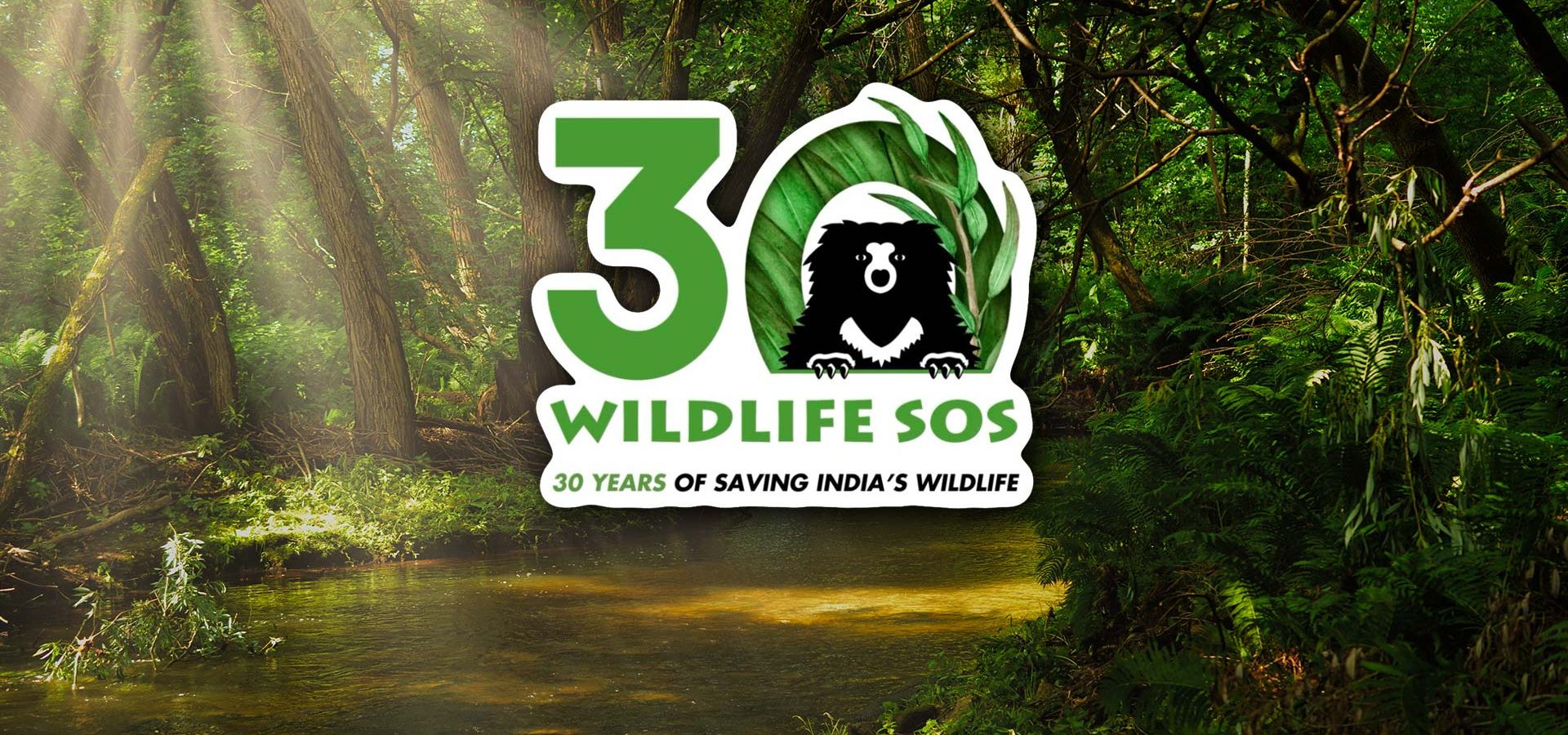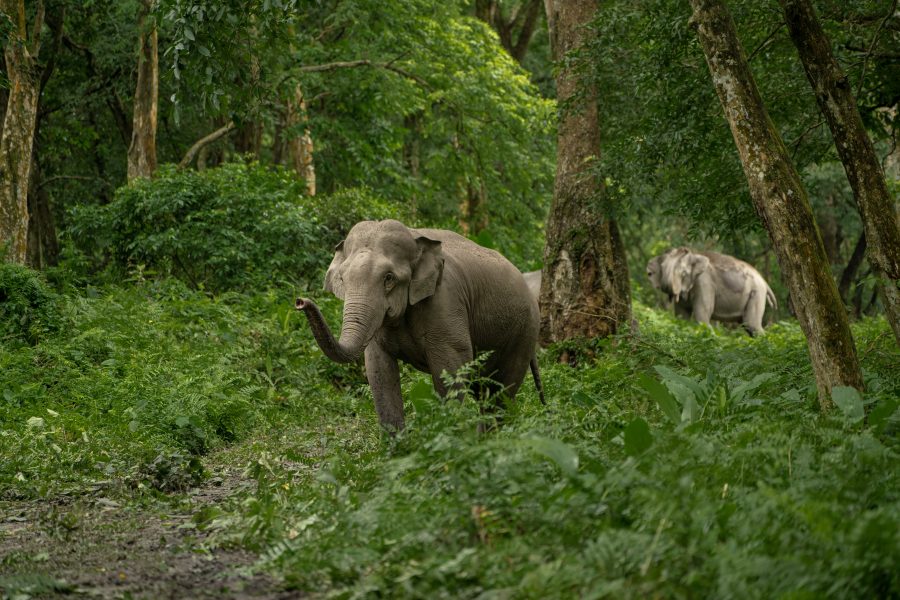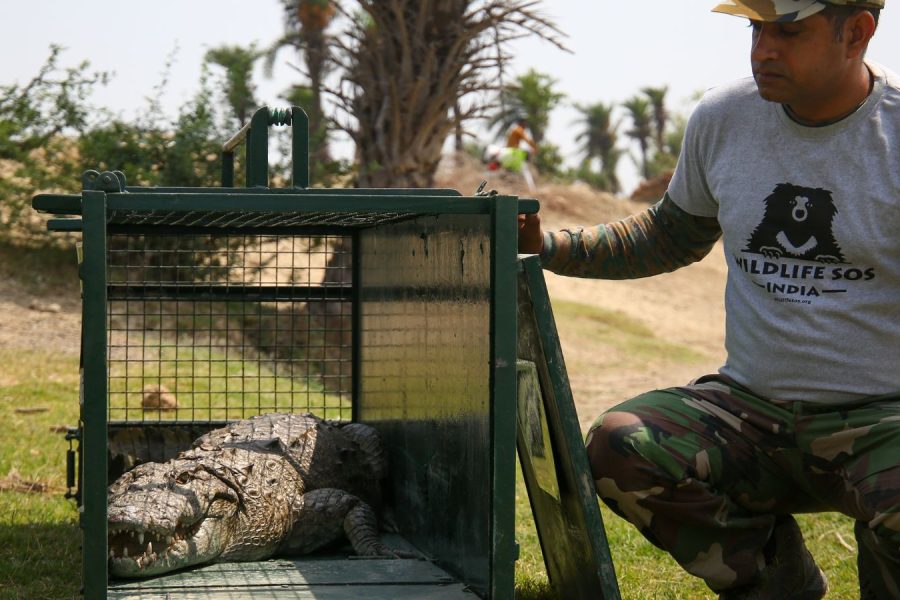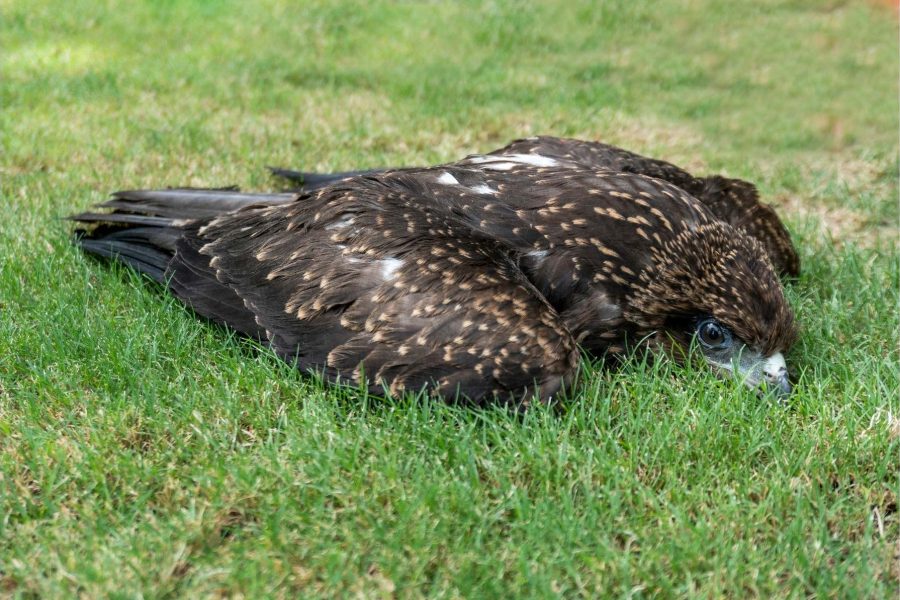Wildlife SOS is honoured to celebrate 30 years of saving India’s precious wildlife. From humble beginnings in 1995 rescuing, treating and rehabilitating animals in distress from a Delhi garage, co-founders Geeta Seshamani and Kartick Satyanarayan have saved hundreds of thousands of animals. From stopping the brutal practice of ‘dancing’ bears and bringing nearly 700 endangered sloth bears to sanctuary, to building India’s first elephant hospital, their success, dedication and compassion has become a model for wildlife conservation in Asia.
Motivated by the need they saw around them, Kartick and Geeta used their own personal resources to mount wildlife rescue operations, determined to help animals in critical need of care. At the time, Geeta was a professor teaching at a women’s college in Delhi while also managing domesticated animal charity Friendicoes. Young Kartick was designing and building human-wildlife conflict mitigation solutions after doing research field work with tigers.
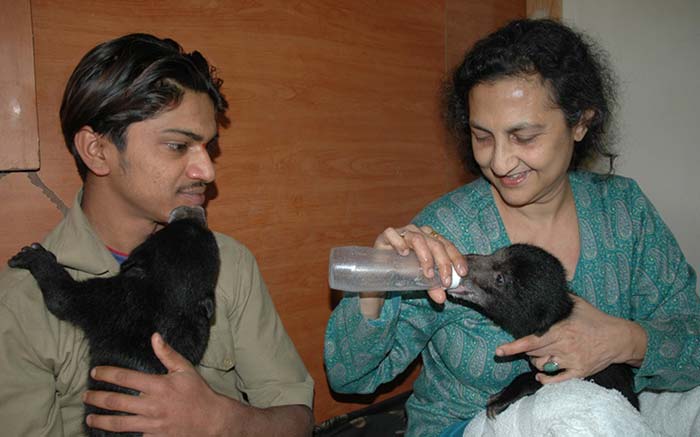
Geeta Seshamani, Co-founder & Secretary, Wildlife SOS said, “As we look back on 30 years of Wildlife SOS, I’m overjoyed to see how far we’ve come. What started with rescuing captive sloth bears, has beautifully expanded into a mission which has rescued and rehabilitated countless other species of animals. Supporting the indigenous Kalandar community with livelihood opportunities and providing a new direction in their life underscores how the ripple effect of our conservation effort extends far beyond animal welfare.”
Kartick and Geeta’s first major achievement was building strong collaborations with the Government of India’s Ministry of Environment, the Police and Forest and Wildlife Departments which then paved the way for a robust round-the-clock hotline to help wildlife in distress.
Kartick Satyanarayan, Co-founder & CEO, Wildlife SOS said, “As we celebrate this milestone, I reaffirm the belief that the future is ours to protect. This guiding principle has been at the heart of our mission since the inception of Wildlife SOS, and it continues to inspire our work today. Now the responsibility to safeguard natural resources lies with each of us. As we are losing vital forest cover, we must come together to focus on necessary protection and reforestation efforts. This is in the hope that the future generations inherit a thriving planet filled with the beauty and diversity of wildlife.”
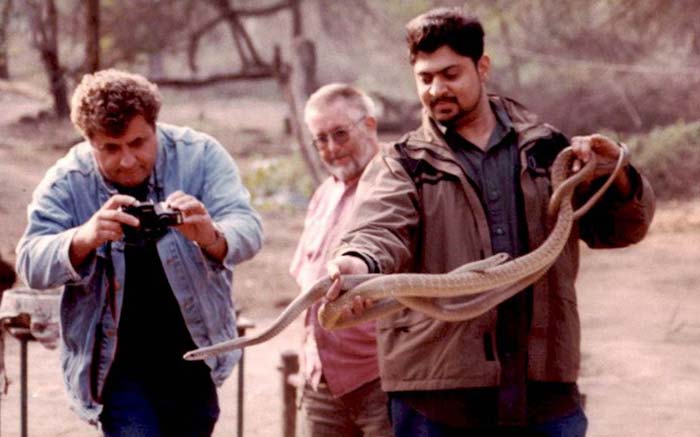
Beginning with rescuing animals common to the Delhi area like kites and eagles, mammals included jackals, civets, hedgehogs, and reptiles like snakes and monitor lizards, the small crew grew to include veterinarians, ambulance drivers, caregivers and undercover anti-poaching investigators. The unstoppable team opened the organisation’s first facility, the Wildlife Rescue Centre in Gurugram, Delhi NCR. Initially using all funds for direct animal rescue, Wildlife SOS became a certified charity in 1998.
Although the team started by helping small animals in the Delhi area, they were studying and investigating a seemingly insurmountable problem with a much larger goal in mind — rescuing ‘dancing’ bears. At the time, it was believed bears exploited for this ancient tradition were captive bred, but through their investigations Kartick and Geeta soon learned nearly all ‘dancing’ bears were poached from the wild as cubs. A carefully crafted plan was born to do what many said was impossible — to rescue all the exploited sloth bears in India.
This novel approach to wildlife conservation included rehabilitating indigenous Kalandar communities who were responsible for much of the illegal poaching of sloth bears. Wildlife SOS found alternative livelihoods for Kalandar men, provided skills training and seed funding for the women of the communities, and gave educational assistance to more than 12,000 children. The investment in people as well as wildlife broke the cycle of exploitation, and provided a lasting solution.
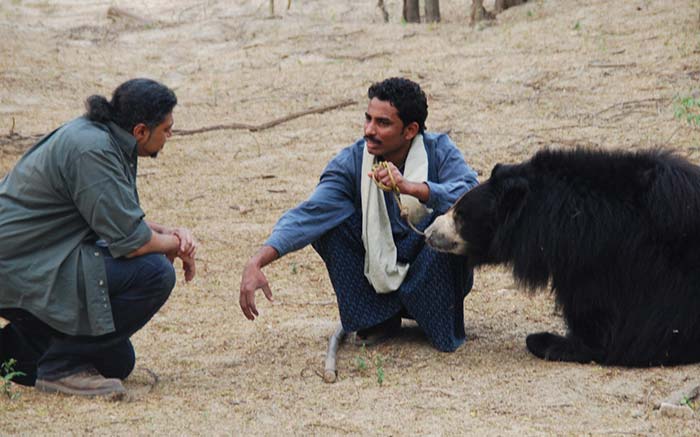
Baiju Raj, Director – Conservation Projects at Wildlife SOS said, “We are forever grateful to the Government of India, MOEF & CC, Central Zoo Authority, State Forest Departments and State Police across India for their support, guidance and cooperation to bring an end to the illegal practice of dancing bears. We could not have done this without the generous support from our major charity partners – IAR UK, One Voice France, HSI Australia, MAWT, FTB etc for their unwavering and invaluable support over the last three decades. Our collective efforts have ensured protection for the endangered sloth bears and restored many wild populations across India.”
When Kartick and Geeta could no longer tolerate the thought of any large animals poached from the wild and desperate for help, they began expanding facilities for the monumental challenges ahead. In 1999 the Agra Bear Rescue Facility (ABRF) opened, in 2007 the Manikdoh Leopard Rescue Centre (MLRC) was created, and in 2010 Wildlife SOS opened the Elephant Conservation and Care Centre (ECCC). Growing staff was needed to care for the hundreds of rescued animals, and small offices in the USA and UK opened to build public awareness and connect with concerned supporters worldwide.
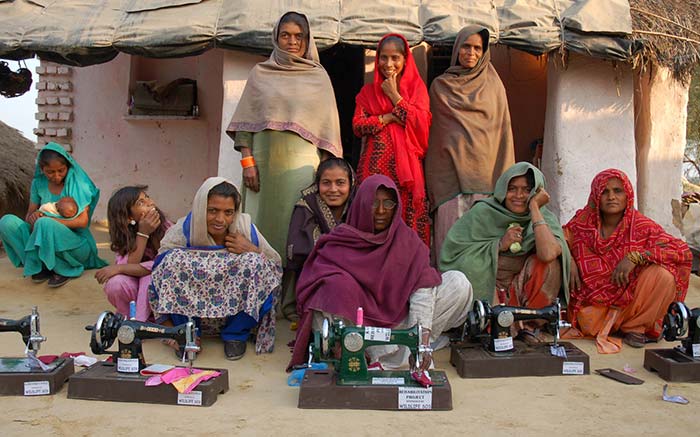
Today, Wildlife SOS cares for hundreds of animals, rescues thousands every year, and operates 12 rescue centres, 9 hospitals and clinics including India’s first Elephant Hospital, and five 24/7 rescue hotlines in major urban areas. Work has further expanded into anti-poaching, education, human-wildlife conflict mitigation, and scientific research to lead wildlife conservation efforts in India and stop the pipeline of poached, trafficked and abused wildlife. The nonprofit charity is supported by individuals from around the world and small grants from like-minded organisations who have entrusted Wildlife SOS to fulfil our mission to save India’s precious wildlife.
The non-stop action of our rescue hotlines keeps the organisation grounded and focused on our mission of saving individual animals while protecting entire species, as we plan for a future of humans and wildlife coexisting in the same landscape. Watch for special 30th Anniversary news, video and events throughout the next 12 months!

